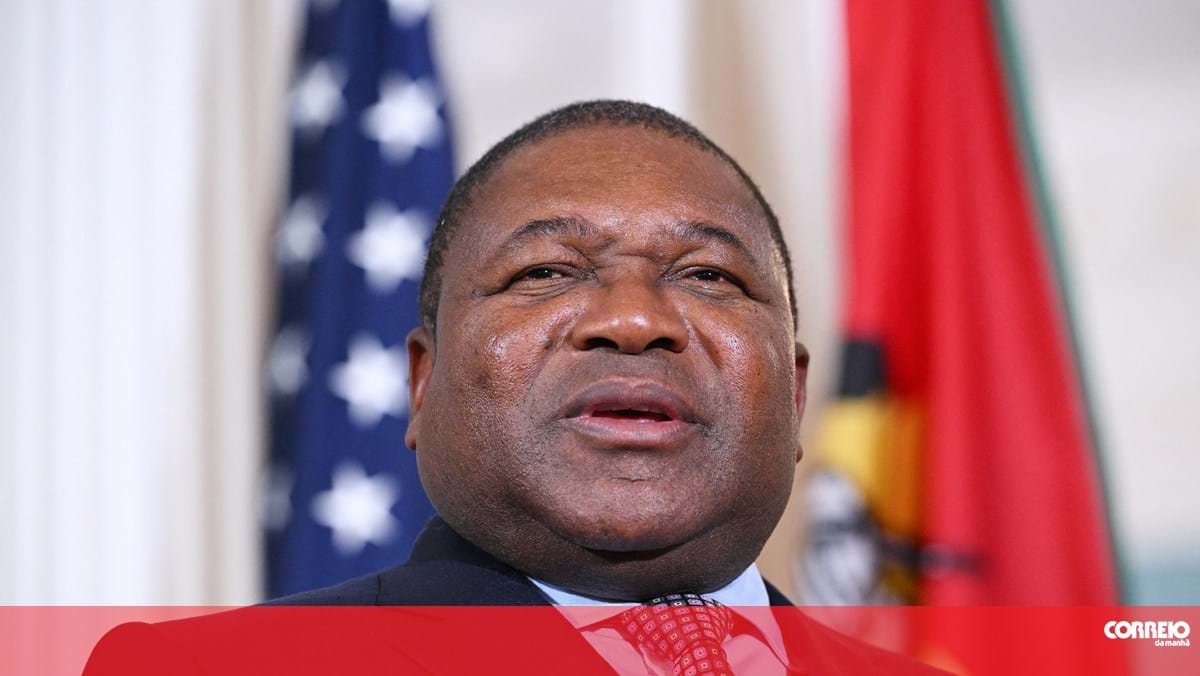Discovered in 2016, the case became known as the “hidden debt” and led to the suspension of international support.
• Photo: Reuters/Mandel Ngan
Mozambican President Filipe Nyusi
On Friday, a British judge warned that the President of the Republic of Mozambique, Filipe Nyusi, should prepare for trial in the “hidden debt” case in October in London, despite the invocation of immunity.
At Friday’s Commercial Court hearing, Judge Robin Knowles admitted that “this is not the time to make decisions about what would happen if the outcome of [discussão sobre a] Admit that immunity one way or another.
But he stressed that “everyone, including President Nyusi, must come forward on the basis of the fact that they face the risk of conducting and being involved in this trial or its consequences.”
The judge’s words were a nod to the convergence between a three-day hearing to discuss the alleged immunity case for the Mozambican president, scheduled for the beginning of August, and the start of the trial on October 3.
The attorney who represented Nyusi in court, Rodney Dixon, agreed that the immunity issue was crucial and that it should be discussed “as soon as possible”.
Filipe Nyusi has been named in the process taking place in British justice by offshore group Privinvest and its owner, Iskandar Safa, because they understand he must be held accountable if allegations of corruption against Privinvest are proven.
The British court authorized President Nyusi’s notification in May 2021, but this was only officially confirmed in April this year and this Friday was the first time he had legally appeared in court to seek diplomatic immunity.
The Lebanese Maritime Group wants Nyusi to explain its participation in the purchase of boats and equipment for fishing and marine protection in Mozambique through the state companies Proindicus, Ematum and MAM.
Filipe Nyusi was defense minister when the contracts were signed with Privinvest and nearly $2.2 billion in loans were obtained with Credit Suisse and VTB between 2013 and 2014.
The loans were secretly approved by the government of the Mozambique Liberation Front (FRELIMO) when Armando Guebuza was still head of state, without the knowledge of the parliament and the administrative court.
The case, which was discovered in 2016, became known as “disguised debt” and led to the suspension of international support, including from the International Monetary Fund, which only recently resumed financial aid to the country.
The Mozambican Attorney General’s Office initiated legal proceedings in the United Kingdom in 2019 to try to cancel the $622 million debt owed by state-owned company ProIndicus to Credit Suisse, alleging that the contracts resulted from corruption.
However, the case added more lawsuits related to the suspension of debt payments by Mozambique to be jointly adjudicated between October and December 2023.
In addition to Nyusi, the London operation appointed several senior civil servants and state figures, such as Guebuza and former Finance Minister Manuel Chang.
In a trial in Maputo in the same case that ended in December, 11 of the 19 defendants were sentenced to prison terms of between 10 and 12 years.
Three of them, Ndambi Guebuza, son of former President Armando Guebuza, and two former SISE leaders, Gregorio Leao and Antonio Carlos do Rosario, have also been ordered to pay compensation to the state equivalent to US$2.8 billion.
The judge in charge, Evgenio Baptista, refused to hear Nyusi in this case.

“Hardcore alcohol maven. Hipster-friendly analyst. Introvert. Devoted social media advocate.”

